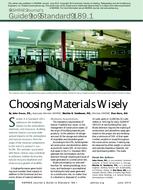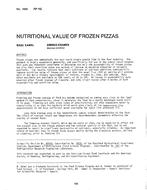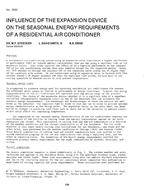Food service operations vary greatly in scope, from serving a few dozen meals a day to several thousand in one meal period. Consequently, the variations from facility to facility in design, equipment, and operation are significant enough to make estimating kitchen energy consumption difficult. Food service energy consumption is a significant load that ranges from 30% to 50% of the energy use in stand-alone restaurants. Consequently, an accurate estimate is important in the energy accounting required for an energy services contract, designing a new facility, or implementing energy conservation measures in an existing facility. This paper discusses the most significant factors in estimating loads from hooded and unhooded cooking appliances in food service operations. It provides several approaches to estimating hourly loads and daily energy use profiles for use in simulation models, depending on the amount of information that is available about the food service establishment.
Units: Dual
Citation: Symposium, ASHRAE Transactions, vol. 107, pt. 2
Product Details
- Published:
- 2001
- Number of Pages:
- 18
- File Size:
- 1 file , 1000 KB
- Product Code(s):
- D-7078


